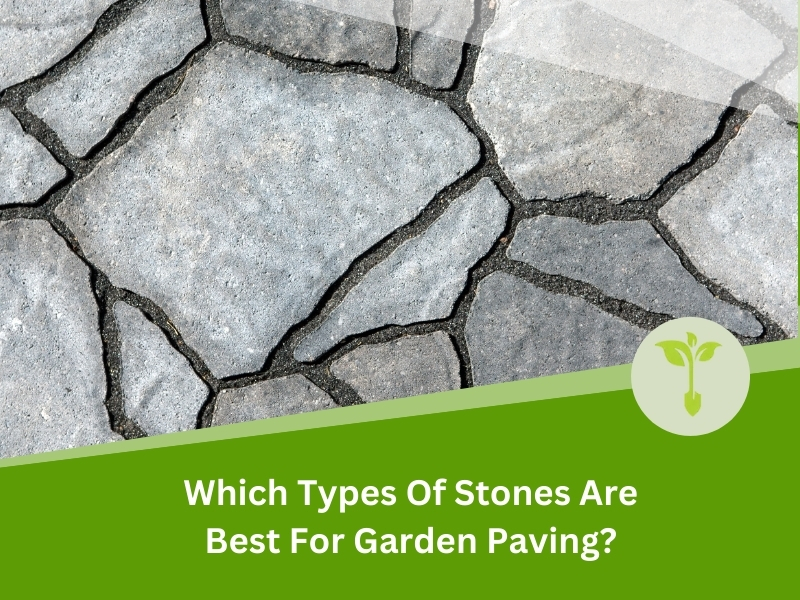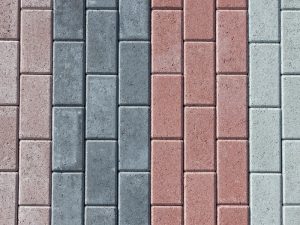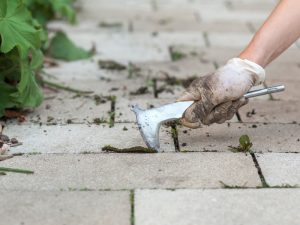Garden paving is a fantastic way to enhance the aesthetics and functionality of your outdoor space. With various stones available, selecting the right type for your garden can significantly affect style and durability. This guide will explore the best stones for garden paving, considering climate, garden style, and maintenance factors.
What factors should you consider when choosing paving stones?
Before diving into the world of stone, consider these key factors:
- Traffic flow: High-traffic areas like walkways and patios need durable rocks like sandstone or bluestone, while lower-traffic spots can get away with softer options like limestone.
- Drainage: Ensure your chosen stones allow proper drainage to prevent water pooling. If necessary, consider installing a sub-base with drainage channels.
- Budget: Natural stones tend to be pricier than manufactured options. Define your budget upfront to narrow down your search.
- Style: Consider your garden’s overall aesthetic. Sandstone offers a classic vibe, while bluestone provides a contemporary feel.
- Slip resistance: Choose textured or grooved stones to prevent slips in moisture-prone areas.
How does climate impact the choice of paving stones in Sydney?
Sydney’s Mediterranean climate, characterised by warm, dry summers and mild, wet winters, plays a significant role in the suitability of paving stones. Here’s what to keep in mind:
- Heat resistance: Choose stones that can handle the high temperatures of Sydney summers without degrading or discolouring.
- Moisture absorption: Opt for stones with low moisture absorption to prevent issues with freeze-thaw cycles and water damage during the rainy season.
- Frost resistance: While Sydney winters are generally mild, frost can still affect some stones if temperatures drop significantly.
- UV stability: Stones that resist fading from UV exposure will maintain their appearance longer.
What types of natural stones are ideal for garden paving?
Natural stones offer timeless elegance and durability for your garden. Here are some popular choices for Sydney’s climate:
- Sandstone: A versatile and affordable option, sandstone comes in various colours and textures, offering warmth and a classic touch to your garden.
- Bluestone: This hard-wearing stone is perfect for high-traffic areas. Its dark, charcoal tones create a modern aesthetic.
- Limestone: Offering a softer, more rustic look, limestone is ideal for low-traffic areas or pathways. However, it requires regular sealing to maintain its beauty.
- Granite: One of the most durable natural stones, granite is ideal for high-traffic areas and driveways. However, it can be pretty expensive.
Are there specific types of paving stones that are best for different garden styles?
Choosing the best paving stones for gardens should complement the overall style:
- Modern: Choose clean lines and geometric shapes. Bluestone, granite, or sleek concrete pavers are perfect choices.
- Traditional: Sandstone in warm tones like cream or beige creates a timeless and inviting atmosphere.
- Mediterranean: Embrace warm colours and natural textures. Sandstone, limestone, or terracotta pavers evoke a relaxed, sun-drenched vibe.
- Cottage: Use irregular flagstones or tumbled pavers, often limestone or sandstone, to create a charming and whimsical feel.
How do you choose between natural and manufactured paving stones?
Both natural and manufactured stones have their upsides and downsides.
- Natural stone:
- Pros: Beautiful, unique, durable, timeless, increases property value.
- Cons: It is more expensive, requires regular maintenance (sealing for some), and is susceptible to staining (some types).
- Manufactured stone:
- Pros: More affordable, wider variety of colours and textures, readily available, requires minimal maintenance.
- Cons: Natural stone may be more aesthetically pleasing and look artificial in some settings.
Ultimately, the choice depends on your budget, desired aesthetics, and desired maintenance level.
What are the maintenance requirements for different paving stones?
The maintenance needs of your paving stones will depend on the material you choose.
- Natural stone: Regular sealing is crucial to maintain beauty and prevent staining. The frequency of sealing will depend on the type of stone. For example, sandstone may require sealing every 2-3 years, while granite may only need it every 5-7 years.
- Manufactured stone: These stones generally require minimal maintenance. Regular cleaning with a hose and mild detergent is usually sufficient. However, you may need a more robust cleaning solution if you notice any stains or discolouration.
It’s also important to note that some natural stones, such as limestone, are more porous than others and may be more susceptible to staining. If you choose a porous stone, you may need to seal it more frequently or avoid using harsh chemicals.
How can you get started with your garden paving project?
Starting a garden paving project can be straightforward if you follow these steps:
- Plan your design: Determine the layout and style of your paving. Consider the overall design of your garden and how the paving will fit in.
- Choose your stones: Based on the factors discussed, select the type that best meets your needs and preferences.
- Prepare the area: Clear and level the area where the paving will be laid. Ensure proper drainage to avoid future problems.
- Hire professionals: For an aesthetically pleasing and environmentally friendly garden, choose professionals with training in sustainable landscaping.
- Finishing touches: Seal your stones if required and add finishing touches, such as edging or joints, to complete the look.
- Maintain regularly: Once installed, implement a maintenance routine to keep your paving looking its best. Regular cleaning and care will extend the life of your paving stones.
Let’s pave the way to your dream garden!
Suppose you want to transform your outdoor space. Hire A1 Gardening & Landscaping Sydney Sydney for your garden paving. Our team offers expert advice and comprehensive services for all your gardening and landscaping needs. From design and installation to maintenance, we can ensure your garden paving project is executed flawlessly. Let us help you create the outdoor space you’ve always dreamed of.



